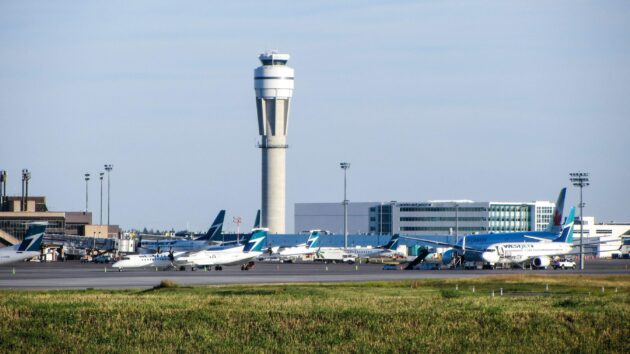
Unifor releases statement calling on improvements to the proposed Air Transportation Accountability Act
by CM Staff
The union's demands include requiring airport authorities and other organizations in the air transportation sector to pay a higher wage instead of what they call the bare minimum.

Airplanes parked on tarmac at a Canadian airport. (CNW Group/Unifor)
TORONTO — Unifor says they believe the government’s new Air Transportation Accountability legislation doesn’t address the root problems of air passenger travel – working conditions in the sector.
“They’re missing a huge piece of the puzzle,” said Unifor National President Lana Payne.
“Transport Canada expects this legislation to be used to improve conditions at airports, but they’ve missed the mark by not acknowledging air transportation workers. Our members’ working conditions are the public’s travel conditions and right now, neither are nearly as good as they should be.”
Transport Canada released C-52: An Act to enact the Air Transportation Accountability Act and to amend the Canada Transportation Act and the Canada Marine Act on Jun. 20, which introduces the ability for the government to impose service standards on flights and flight-related services. Unifor says the service standards will not be met if the government doesn’t also focus on improving standards of work in airports and on flights to ensure enough staff are attracted and retained in the industry to meet the requirements.
Unifor and air transportation workers have been calling on the government to improve working conditions for months. The union’s demands include requiring airport authorities and other organizations in the air transportation sector to pay a higher wage instead of what they call the bare minimum.
Unifor says that improving the travel experience and meeting the standards will require a revamp of how the industry treats workers and values the work that is performed at all stages of service – from checking in luggage to ground handling and customer service, all the way to take-off and landing.
The legislation allows the government to limit the number of aircraft movements at airports, limiting supply instead of meeting passenger demand. The legislation also focuses on noise management and complaint handling and requires airport authorities to develop climate change plans, facing fines and penalties for violating the Act.
Leslie Dias, Unifor’s Director of Airlines said fines will do little to address air transportation woes.
“If the quality of jobs in the sector continues to erode, the service standard will never be met. This Act is completely devoid of any kind of minimum requirements for the workers who are expected to maintain the standard, such as living wages, successorship rights for contract flipping, and adequate quality training,” said Dias.